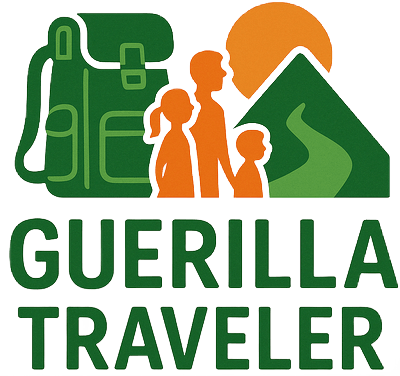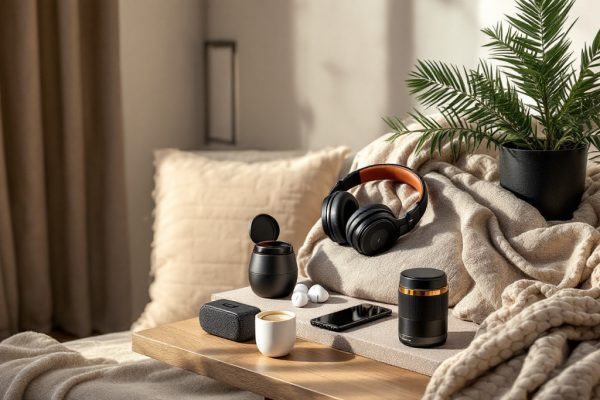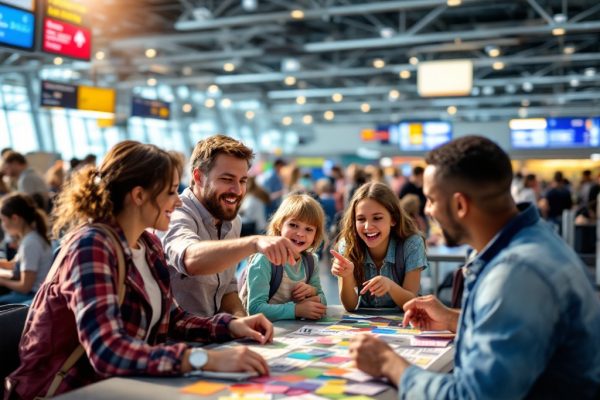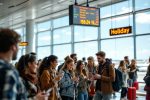How Do Flight Attendants Deal with Jet Lag?
Tired of jet lag ruining your trips? Discover the secrets flight attendants use to beat it! Learn how to adjust your sleep, utilize hydration and smart food choices, and create a relaxing travel experience. From pre-flight routines to in-flight hacks and post-arrival tips, this guide offers practical advice and natural remedies to conquer jet lag and enjoy your travels to the fullest. Start feeling refreshed and energized on your next adventure!
Important information

- Adjust your sleep schedule gradually to your destination’s time zone before departure.
- Stay hydrated by drinking plenty of water and avoid alcohol and caffeine, especially during the flight.
- Upon arrival, adapt to the local time right away and get some daylight.
- Eat small, light meals and take short naps to combat fatigue.
- Consider using natural sleep aids like melatonin or aromatherapy to regulate sleep.
Top Tips from Flight Attendants to Tackle Jet Lag
Flight attendants employ several strategies to combat jet lag. Before a trip, they adjust their sleep schedules gradually to align with their destination’s time zone. Hydration is key, so they drink plenty of water and avoid caffeine and alcohol before flights. They maintain consistent routines as much as possible, often carrying a reusable water bottle. Upon arrival, they adapt to the local time immediately and expose themselves to daylight. Alcohol is still avoided. The CDC also recommends small meals and staying hydrated to minimize jet lag’s effects. Short naps can combat daytime fatigue. Staying active during the flight, even with a short walk, can also help. Eye masks and earplugs promote rest during flights. Some flight attendants use melatonin a few days before travel to regulate their sleep cycles. Noise-canceling headphones and weighted eye masks further enhance sleep quality. Journaling and aromatherapy with essential oils can help with relaxation. A calming pre-sleep routine signals the body to unwind. Packing light, possibly with a smaller suitcase, reduces travel stress. However, essential items like medications and comfortable shoes should not be forgotten.
Before the Flight
- Gradually adjust sleep schedule.
- Hydrate with plenty of water.
- Avoid caffeine and alcohol.
- Consider using melatonin a few days prior to travel.
During the Flight
- Stay hydrated.
- Take short walks.
- Use eye masks and earplugs.
- Use noise-canceling headphones.
After Arrival
- Embrace the local time.
- Seek out daylight.
- Avoid alcohol.
- Eat small meals.
Additional Tips
- Maintain consistent routines.
- Journal and use aromatherapy.
- Establish a calming pre-sleep routine.
- Pack light but include essentials.
Pre-Flight Strategies for Time Zone Adjustment
Gradually adjust your sleep schedule to your destination’s time zone in the days leading up to your departure.
Maintain optimal hydration by drinking plenty of fluids, especially water, before, during, and after your flight.
Choose light, easily digestible meals to avoid digestive discomfort during travel. Avoid heavy, greasy foods that can exacerbate jet lag symptoms.
Try to stay awake during daylight hours at your destination, even if you feel tired, to help regulate your body’s natural sleep-wake cycle.
Use a reusable water bottle or hydration pack to ensure easy access to fluids throughout your journey and combat dehydration.
Consider using melatonin supplements a few days before, during, and after travel to help regulate your sleep and adjust to the new time zone. Consult your doctor for dosage recommendations.
In-Flight Tips: Staying Hydrated and Eating Light Meals
Staying well-hydrated by drinking plenty of water is essential, especially on airplanes, as it counteracts the drying effects of cabin air. Eating light, easily digestible meals further promotes well-being by improving sleep and reducing sluggishness, making it easier to adjust to new time zones. Flight attendants, keenly aware of these benefits, prioritize hydration and sensible eating to manage jet lag and maintain peak performance. The CDC concurs, recommending these practices for all travelers to minimize the impact of jet lag.
Post-Flight Recovery: The Importance of Sleep and Naps
Quality sleep is essential for recovering from a flight and effectively resetting your internal clock. A short nap can alleviate drowsiness and combat fatigue, but be cautious about the timing and duration. Napping incorrectly can interfere with your nighttime sleep. For example, a long nap later in the day can make it difficult to fall asleep at night. Prioritizing a regular sleep schedule will also promote faster recovery.
Sleep Solutions for Flight Attendants
Flight attendants often struggle with irregular schedules and jet lag. They employ several strategies to manage their sleep effectively. A consistent sleep routine, even on days off, helps regulate their body’s natural rhythm. A calming pre-sleep ritual, like dimming the lights, taking a warm bath, or reading, signals the body to relax.
Creating a Conducive Sleep Environment
A dark, quiet, and cool space is essential for quality sleep. Flight attendants often use noise-canceling headphones or earplugs to block distractions and weighted sleeping masks to eliminate light. These tools help create a restful sanctuary, even in hotels or during layovers.
Hydration’s Impact
Staying well-hydrated significantly impacts sleep quality.
Strategic Napping
Flight attendants strategically choose between short, refreshing naps (20-30 minutes) and staying awake, depending on their schedule and the local time zone.
Longer Naps and Time Zone Adjustment
While longer naps can disrupt nighttime sleep, staying awake upon arrival can help adjust to a new time zone and minimize jet lag.
Individualized Approach
The best approach to managing sleep varies depending on individual needs and the length of the stay.
Natural Sleep Aids
Flight attendants generally prefer natural sleep aids over sleeping pills. Melatonin can help regulate the sleep-wake cycle, which is particularly useful when adjusting to new time zones. Aromatherapy, using scents like lavender or chamomile, can promote relaxation.
- Some flight attendants also find relief in herbal teas or other natural remedies,
- sleeping pills are typically avoided due to potential side effects and the risk of dependency,
- natural methods offer a gentler approach, minimizing disruptions to natural sleep patterns.
Why Avoid Sleeping Pills?
Sleeping pills are typically avoided due to potential side effects and the risk of dependency. Natural methods offer a gentler approach, minimizing disruptions to natural sleep patterns.
Managing Sleep Schedules and Sleep Hygiene
Flight attendants know the value of good sleep and stick to regular sleep schedules. A dark, quiet, and cool environment helps them sleep soundly.
Choosing Between Naps and Staying Awake
A short nap can combat fatigue, but staying awake can ease jet lag. Consider how tired you feel.
When deciding whether to nap or stay awake, weigh your current sleepiness against the time difference. Consider the hours separating you from home to choose the best approach.
Natural Sleep Aids vs. Sleeping Pills
Natural sleep aids, such as melatonin and chamomile tea, can promote restful sleep without the grogginess often associated with sleeping pills. Unlike sleeping pills, which can disrupt natural sleep cycles and impair alertness, natural alternatives offer a gentler approach. This is particularly important for professionals like flight attendants, who require peak performance.
Nutrition and Hydration: Keys to Energy and Recovery
For flight attendants combating jet lag, proper diet and hydration are crucial. Light, nutritious meals provide sustained energy and speed up recovery. Staying hydrated is equally vital, supporting essential bodily functions and lessening jet lag’s effects. Hydration packs offer a practical solution for in-flight hydration. By prioritizing healthy food and ample water intake, you’ll significantly improve your well-being.
Diet
Light, nutritious meals provide sustained energy and speed up recovery.
Hydration
Staying hydrated supports essential bodily functions, lessening jet lag’s effects. Hydration packs are a practical solution for in-flight hydration.
Hydration Packs and Light Meals for Jet Lag Mitigation
Staying hydrated is essential for flight attendants, especially on long flights, and hydration packs make this much easier. Likewise, light meals, such as bananas, provide sustained energy without the caffeine crashes that can worsen jet lag. This approach also helps minimize bloating, a common flying discomfort, and replenishes vital nutrients often lost during travel.
















